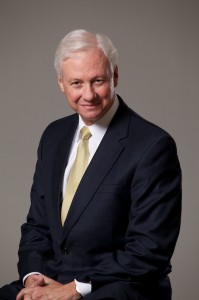NAFUSA member Jack Selden and his firm Bradley Arant Boult Cummings LLP won a significant victory this week both for their client AseraCare and for the False Claims Act (“FCA”) defense bar generally. A federal judge struck down a $200 million FCA case against the hospice provider, holding that the government’s second guessing of physicians’ medical judgment alone cannot prove false claims.
In United States ex rel. Paradies v. AseraCare, Inc., No. 2:12-cv-245, Doc. 497 (N.D. Ala. March 31, 2016), Judge Karon Bowdre granted summary judgment for the defendant after an eight week trial, much of which consisted of conflicting expert testimony about the hospice eligibility of 123 patients. After considering the evidence presented, Judge Bowdre found that the government had failed to prove its case, as “[a] mere difference of opinion between physicians, without more, is not enough to show falsity.” Id. at 2. AseraCare Memorandum Opinion and AseraCare FINAL ORDER.
The Justice Department alleged that AseraCare had a practice of certifying patients as eligible for hospice who were not eligible. By statute, eligibility for the Medicare hospice benefit is premised on a physician’s certification of terminal illness (“COTI”). The COTI means that, in the physician’s clinical judgment, the patient is “terminally ill”—i.e., that the patient has a medical prognosis that his or her life expectancy is six months or less if the illness runs its normal course.
The Justice Department based its case on the testimony of a retained medical expert who reviewed the medical records of a sample of 233 patients and opined on whether the documentation supported the COTIs. The Government planned to extrapolate this medical expert’s findings to a larger universe of approximately 2,200 patients. The Government repeatedly admitted to the court that the medical records and its medical expert’s testimony were the only evidence it offered to prove falsity. Id. at 6.
In May 2015, on AseraCare’s motion, Judge Bowdre ordered that the trial be bifurcated. The first phase of the trial was limited to the falsity element of the FCA claim—i.e., evidence regarding eligibility for the Medicare hospice benefit with respect to the sample patients for whom the government’s medical expert had reviewed the medical records. The second phase would address all other elements and causes of action, including evidence of AseraCare’s purported knowledge, statistical sampling and extrapolation, and damages.
In her opinion, Judge Bowdre described the first phase of the trial:
[The government’s medical expert] testified about why, in his opinion, the excerpts from the patients’ medical records did not support the COTIs of the patients at issue. However, AseraCare’s experts pointed to different pages from the patients’ medical records that in their opinion showed that the patients were eligible for hospice.
Id.at 4. Before instructing the jury at the close of the first phase, Judge Bowdre declined to give AseraCare’s proposed instruction that a mere difference of opinion is insufficient to prove falsity. The jury deliberated for several weeks before returning its answers to special interrogatories and finding—based on the limited jury instructions regarding falsity—that AseraCare had submitted false claims for the majority of the relevant patients.
The trial did not reach the second phase. In November 2015, before the second phase began, Judge Bowdre granted AseraCare’s motion for a new trial, on the grounds that she now believed it had been error not to instruct the jury that a mere difference of opinion was insufficient to prove falsity. She also sua sponte stated that she would consider summary judgment and allow the Justice Department an opportunity to brief whether it presented any objective evidence of falsity other than its medical expert’s testimony.
In granting summary judgment for AseraCare, the court found:
When two or more medical experts look at the same medical records and reach different conclusions about whether those medical records support the certifying physicians’ COTIs, all that exists is a difference of opinion. This difference of opinion among experts regarding the patients’ hospice eligibility alone is not enough to prove falsity, and the Government has failed to point the court to any objective evidence of falsity.
Id. at 5.


You must be logged in to post a comment.